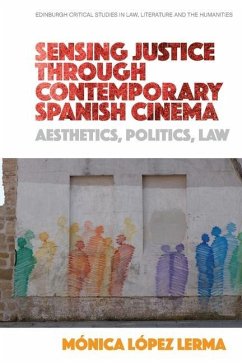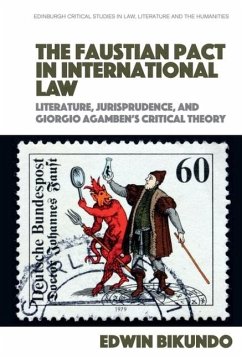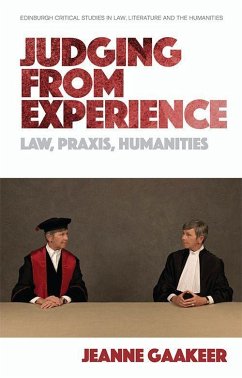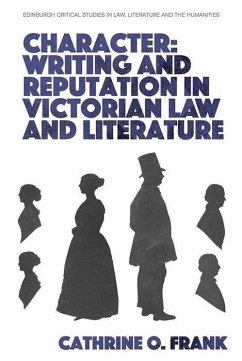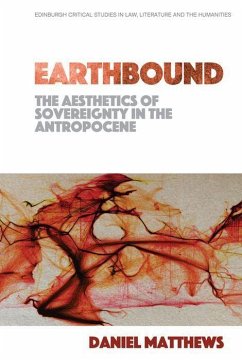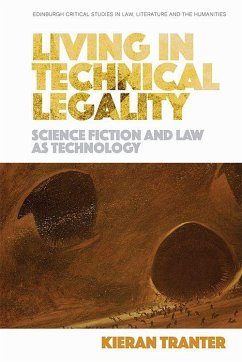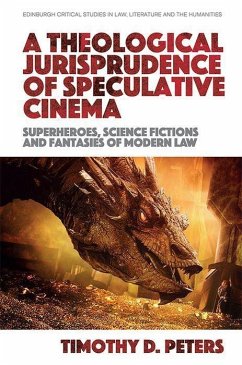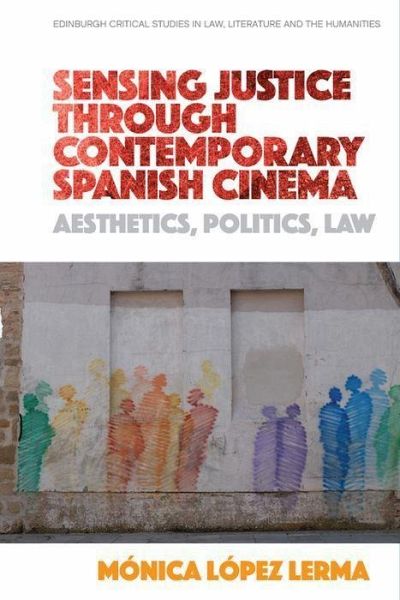
Sensing Justice Through Contemporary Spanish Cinema
Aesthetics, Politics, Law
Versandkostenfrei!
Versandfertig in über 4 Wochen
122,99 €
inkl. MwSt.
Weitere Ausgaben:

PAYBACK Punkte
61 °P sammeln!
Explores the aesthetic frames that mediate the sense(s) and experiences of justice Sensing Justice examines the aesthetic frames that mediate the sensory perception and signification of law and justice in the context of twenty-first-century Spain. What senses do these frames privilege or downgrade? What kind of subjects do they show, construct, and address? What kind of affective and ethical responses do they invite? What kind of judgments do they invite? The book addresses these questions by moving away from the focus on narrative and through a close analysis of selected contemporary Spanish ...
Explores the aesthetic frames that mediate the sense(s) and experiences of justice Sensing Justice examines the aesthetic frames that mediate the sensory perception and signification of law and justice in the context of twenty-first-century Spain. What senses do these frames privilege or downgrade? What kind of subjects do they show, construct, and address? What kind of affective and ethical responses do they invite? What kind of judgments do they invite? The book addresses these questions by moving away from the focus on narrative and through a close analysis of selected contemporary Spanish films-such as Pan's Labyrinth, High Heels, Common Wealth, The Method, No Rest for the Wicked and Unit 7. By creating new frames of perception and signification, the films analyzed challenge the senses of law and justice traditionally taken for granted and reconfigure them anew. Engaging with legal theory, film studies, aesthetics, and politics, Sensing Justice provides a compelling illustration of how law and justice are multisensory and embodied experiences. Key Features: . close analysis of films such as Pan's Labyrinth, High Heels, Common Wealth, The Method, No Rest for the Wicked and Unit 7 . engages with legal theory, film studies, aesthetics, and politics . approaches law and film as multisensory, embodied practices . draws on European case studies in a field largely dominated by Anglo-American discourse Mónica López Lerma is Associate Professor of Spanish and Humanities at Reed College.




